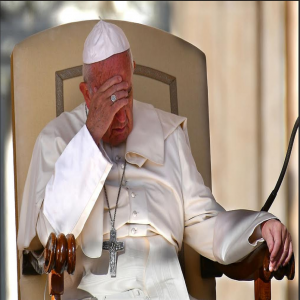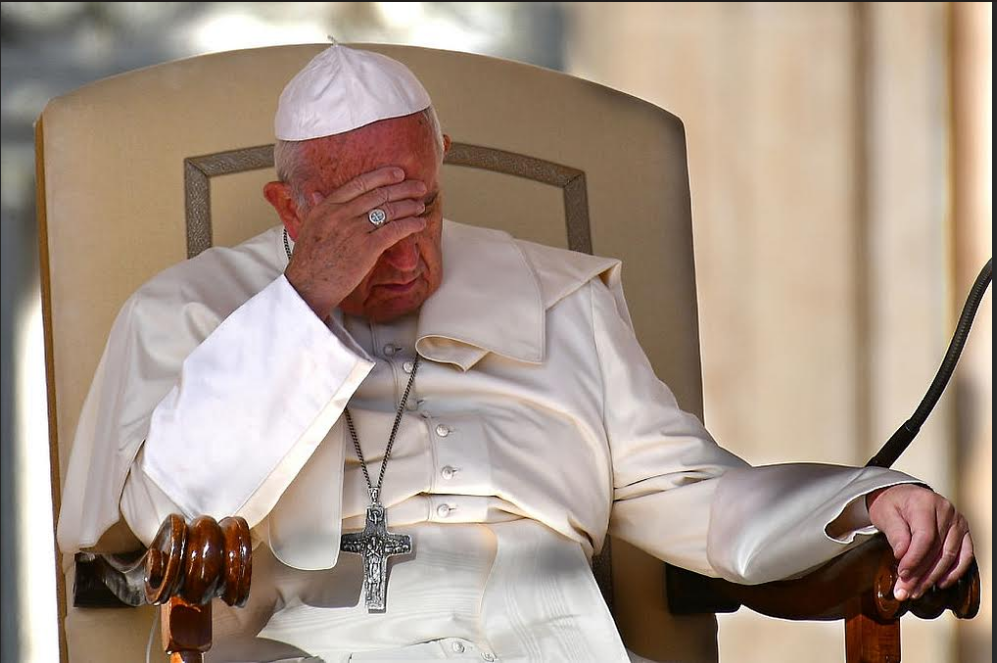

Holy Father Pope Francis has always been concerned about division in the Church and called the division a disease. He said: "There are ideas, positions that create division, to the point that the division is more important than unity" (Catholic News Agency, May 4, 2020). For Syro-Malabar Catholics living in Kerala, the truth of this remark has now come to haunt and hit hard!
The present division in the Syro-Malabar Catholic Church stems from a disagreement existing between two factions of the Church over a decision taken by the Church's Synod to unify the way holy mass is offered in all churches under its jurisdiction. While an overwhelming majority of the dioceses have accepted the Synodal decision, the Ernakulam-Angamaly faction rejected it, unleashing in its aftermath a torrent of mental and physical violence unsettling any true believer of Christ.
For a Catholic like me, who had been a member of both Syro-Malabar and Latin churches at one time or another and who seamlessly followed and relished both formats while living in different parts of the country, the present controversy appears to be a little bewildering because both factions say the same prayers and acknowledge Pope and their respective bishops during the mass. The crux of the problem seems limited to whether a priest would turn towards the altar during Eucharistic prayers as mandated by the Synod or would continue to face the congregation throughout the mass. It is amazing that this could snowball into a major controversy in the Church!
Both parties or factions seem to have lost the plot after the new format was approved by the Pope. Some observers wonder whether sufficient deliberations were made at all levels, including at the levels of laity and missionaries, before the agenda was taken up for consideration when the world was still recovering from Covid shock waves and whether the church leaders representing Ernakulam-Angamaly Diocese had failed to read the sentiments of the Ernakulam-Angamaly faction. Others argue that this has nothing actually to do with unified mass and is a continuation of the anger that had built up against the former church leadership, whether legitimate or otherwise.
Now, common believers are mute witnesses to the sad spectacle of the church leaders routinely issuing edicts, missives and exhortations, most of which either get burnt or tossed into dustbins. My interactions with many ordinary members of the Church convinced me that there are believers who agree with and disagree with the Synodal decision in the Ernakulam-Angamaly region, but they are mostly not interested in a fight or living with endless factionalism. To a great extent, they have become rudderless, and their spiritual life has been compromised. Nevertheless, what is interesting is that neither party seems to care for these largely voiceless people, and the problem is generally seen as one between two factions of the clergy. The animosity between the factions has become so serious that when a church bell in the Ernakulam-Angamaly region tolls, a thinking Catholic wonders whom the church beckons?
While emphasising the immutability or inviolability of the Synodal decision following its approval by the Holy Father, the church leaders have issued missives suggesting at least one holy mass be offered on Sundays and obligatory days in the approved Synodal format. This might have been done out of a genuine desire to solve the pestering problem through a spirit of reconciliation. However, it further confounds the highly confused laity. Logically and effectively, it means all masses offered in both old and new formats are valid so long as at least one holy mass is offered on Sundays and obligatory days in the approved Synodal format. What, then, is the fuss?
The believers are filled with apprehensions. These days, when you attend a holy mass in a format not approved by the Pope, you come out of the Church with a sense of guilt whether you have violated the principle of obedience to the Pope! For Catholics, the Pope, who walks in the path of St. Peter, the founder of the Church, is the pivot. Without a Pope, people can have churches, but not a Catholic church!
Mercy and kindness are two words Pope has consistently used in his homilies. Think of the elderly who are in greater need of church ministries! Be kind to them. Please give them some clarity, maybe someone in proper authority could tell them that holy mass is more important than format, and if they attend a mass not approved by the Synod/Pope, they are not in violation of any tenet! Or wise men of the Syro-Malabar church may introduce some reform as in the Latin Church, where I understand attendance on Sundays and obligatory days is not mandatory for people over 60 years of age. Both these acts of kindness could unburden their sense of guilt in old age. My experience both in India and abroad is that the elderly still constitute a sizeable bulk of the congregation in Latin rite despite the exemption given to them because what is important for them is their desire to be in communion with God by volition. It is also perhaps a testament to the trust the Church has in the wisdom of its elders!
It is so important that factionalism, remaining like a pestering wound for many years now, is solved without further delay. It is pointless to criticise vested interests for the Church's woes as some folks would like to do. In a competitive world of differing ideologies, agendas and interests, including politics, vested interests will always like to fish in troubled waters! It is for us to be wise and vigilant.
From a non-partisan point of view, there seem to be merits in both formats. Neither is an anathema to a common believer. However, I realise that liturgical unity is important to enabling the free movement of priests across the jurisdiction of the Syro-Malabar Catholic Church for pastoral duties or purposes.
One merit I find in the format that involves the priest facing the congregation throughout is that it does not actually need a specific structure in the form of an altar and is eminently suitable for places where formal church buildings are not available, especially in non-traditional areas where the Gospel is proclaimed. A priest can offer holy mass in any make-shift structure, even in huts, when the mission of preaching the Gospel gets priority over things temporal. By default, this is the format followed in the Latin Church, the spiritual head of which, and Syro-Malabar Catholic Church, is the Pope himself.
In the new Synodal format, it is obvious that tradition and identity get priority over other things. For the local population taking pride in the tradition of St Thomas, one of the twelve apostles of Christ, it is an indispensable part of their life rooted in the Indian cultural milieu, especially as millennia-old converts inspired by St Thomas himself. It also makes sense in the context of ecumenical unity among various denominations in St Thomas tradition, a desire close to the heart of our Holy Father.
To repeat the point already mentioned, the genuine sufferers in the factional fight are neither the dissenting priests nor the church leadership but the poor believers who seem to have been forgotten by both.
The holy mass of the Syro-Malabar Catholic church typically starts with a song of reconciliation. It reminds us of a passage from the Gospel according to St Mathew (5:23): "So when you are offering your gift at the altar, if you remember that your brother or sister has something against you, leave your gift there before the altar and go; first be reconciled to your brother or sister, and then come and offer your gift."
Let us not engage in acts of self-deception; let us reconcile and solve this problem in a spirit of understanding. For God's sake. For believer's sake.
To introduce an element of humour in an otherwise serious discourse, let me say how Keralites are perceived outside Kerala. Famous for their large egos and strong views, every single Keralite is jokingly referred to as a Samajam (Union)! Dealing with such a stock, intelligent and rebellious, would require consummate handling and tireless efforts at an early solution. Else, they will begin to see merit in what English-American philosopher and writer Thomas Paine said in his influential work, The Age of Reason: "My own mind is my own church," emphasising personal faith and reason over institutionalised worship.